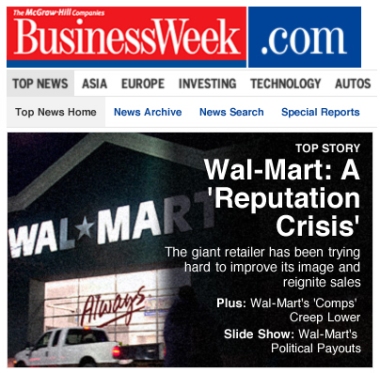I was intrigued by a couple of major media stories about Toyota. Today there is this story from US Today saying that Toyota’s reputation may need an overhaul following the latest hit–a major safety recall. It identifies a string of problems that the world’s largest automaker has experienced in the recent past. This follows last week’s cover story in the Economist in which the major challenges Toyota faces are examined in some detail. The story starts with the chairman and grandson of the founder revealing that he has been reading Jm Collins’ book “How The Mighty Fall.”
No doubt Chairman Toyoda has plenty to worry about. But, as I commented here a long time ago, his biggest worry from a reputation standpoint comes from his success. Strange thing about this time and culture–we like winners, but we don’t really like big, gigantic winners who keep on winning. Certainly part of that is our media pattern of following the rise of someone or some organization as they battle the giants, but as soon as they get to the top and topple the giants, the deconstruction begins. In some cases, like Tiger, the deconstruction is aided mightily by their own misdeeds. It is not just media, however. Our cultural values tend to distrust and dislike anything too big and powerful. We don’t like monop0lies or anyone that smells like one. We don’t like teams or companies or celebrities who simply dominate. I said here before that Microsoft finally emerged from under the cloud of its success when it became clear that its dominance was no longer assured with Google coming on strong. Now Google faces the very real problem of their famous corporate slogan turning on them and biting them on the backside. As they get increasingly powerful, more and more will see evil in every move they make.
Toyota has its problems, no doubt. They’ve made mistakes. But having a big safety recall over floormats that slip over accelerators and having the media conclude that this is a sign they need a reputation makeover identifies their real problem. They are the big dog. They’ve got a target on their back. They have tens of thousands of journalists, bloggers, and others beside competitors, who would love to help lower them a notch or two.
Communicators and executives at Toyota have a tough challenge. Above all they need to “walk humbly” while the company continues to innovate, put their kaizen strategies to work, and strive harder than ever to lead.
